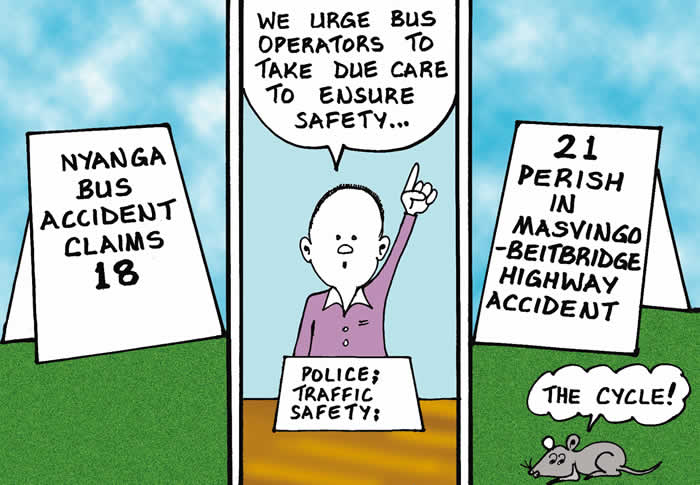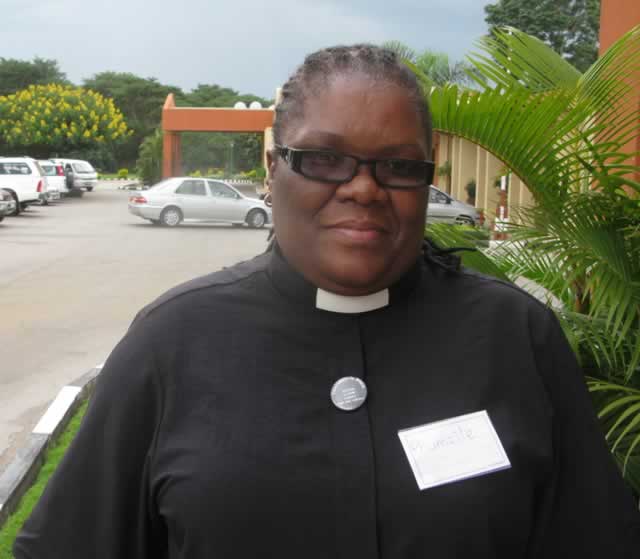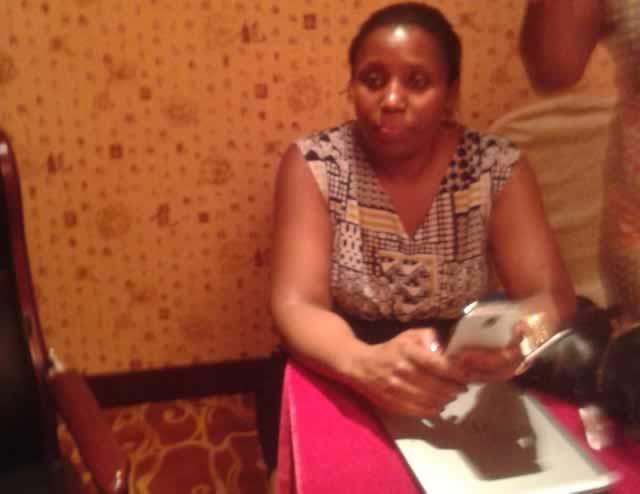Good nutrition keeps virus at bay
around my community sensitising those living in denial that there is life after testing positive of HIV”. These were the words of Rebecca Chauke of Dzivaresekwa, early this month.
Chauke is one of the three founder members of Yamurai Support Group in Dzivaresekwa Extension, Harare.
The young woman said she has a story to tell and today is the chairperson of the support group with over 100 members.
Chauke spoke at a nutrition day held in Dzivaresekwa Extension early this month.
She said were it not for the nutritional support she received from The Centre, she would not have lived because when she commenced ART she hardly had any food. ARVs cannot be taken on an empty stomach.
Chauke said she fell ill in 2005. In the back of her mind, she knew she could be HIV positive but she brushed that aside.
In her own words: “I wished the virus away.”
“I had a running stomach that would not stop after I gave birth to my baby boy in 2005. I was scared to get tested so I stayed at home. Friends told me that taking one’s urine would wipe the virus out and I resorted to that,” said Chauke.
Chauke’s health continued to deteriorate and she visited Kutama Hospital in 2007 for tests and realised she was HIV positive.
“I was told that from there I was now supposed to use protection and was treated and asked to go back home,” she said.
On the way from Kutama Hospital, Chauke destroyed her results note and wished HIV away.
She went back home and from there her health was on a free fall.
“I continued taking a cup full of urine three times a day or even more. I treasured my urine and stored it in a plastic container. Instead of taking water I would take my urine since I was told that it cleared the HIV virus from the system I religiously did that for years,” said Chauke.
Despite taking gallons of urine, her health did not improve. In fact, she got worse and one of her friends told to visit Wilkins Hospital. That was now 2007.
“My friend advised me to visit the Wilkins Hospital and since I was so wasted I did not resist. I was counselled and had another HIV test done. I was later commenced on ART because my CD count was around 100,” she added.
Chauke said that at Wilkins she was offered post-test counselling sessions and informed that there was a place called The Centre that offered help to people who were HIV positive.
Chauke heeded their advice and went straight to look for the place.
“I did not have any difficult in locating the place from Wilkins Hospital. I was surprised with the reception I got there,” she added.
Since she was so wasted, The Centre — run by Lynde Francis — saw that she was indeed in need of food rations.
“When I arrived a fully loaded truck was about to leave for Hatcliffe Extension with food supplements. One of the workers there, Bennette Jabangwe, told the driver to stop and I was given mealie-meal, beans, nutritional porridge supplement and some cooking oil. With my condition these basics to me meant so much,” said Chauke.
Chauke said the food rations were bulky and she carried them in two tranches.
“I was so glad to receive some food rations. That was during the economic meltdown and no one spared any food for a stranger, so to have such a lot given me for free made a difference to me.
“Today, Jabangwe does not even remember the incident. To me she saved me from the brink of hunger so it remains etched in my mind,” she said.
Chauke, one of the three founder members of Yamurai, said she collected her ARVs from Wilkins. She was informed that she could find people in similar positions and then from there they could offer each other support.
“A nurse at Wilkins told us that it was possible to make friends from people who were in the same position as me. But then there were few support groups and people did not open up that they were HIV positive. I was later transferred to collect my ARVs from Dzivaresekwa Polyclinic,” said Chauke.
Chauke said at the clinic she saw several people from her neighbourhood collecting ARVs and approached them.
“Not all were willing to talk openly about their status. Some even told me to mind my own business. I was lucky that I found two people willing to form a support group. That was now in 2009. The clinic staff was supportive and told us that living testimonies were the best messages to have more people getting tested and initiated on ART,” she said.
From there Chauke and her two friends became foot soldiers and visited households in the area telling them that there was now medication to contain the effects of HIV.
“We visited sick people and told them to get tested. We told them that they were wasting their time visiting faith healers and n’angas. People who had seen me years before were surprised with the transformation, they eagerly listened and followed what we said,” said Chauke.
She told the people that they would even get food rations if they got tested and were commenced on ART.
They approached the school head at their local school asking for a place to meet since the support group was growing.
“The headmaster was understanding and offered one of the open buildings to use. This is our meeting place even today. It also gave us the name Yamurai,” said Chauke.
They did not look back and the community was appreciative and soon ill people started reporting at the local clinic. Those who tested HIV positive and were in need of ARVs got initiated on ART.
Chauke said she went back to The Centre and told them of the strides the group was making in raising awareness in the area. She said The Centre was interested and thus how they found themselves working with the group.
“We started working with The Centre from the end of 2009. They have trained us as trainers. They asked The St John Ambulance to train us and the children who were care givers in their homes. The Centre provided home based care kits and the St John staff trained us in first aid and home based care too,” she said.
Today the support group has continued in the work with the two organisations.
Mrs Jabangwe of The Centre said what they liked of Yamurai was that what ever was taught was utilised.
“With Yamurai you do not repeat any training. We equipped them with nutritional eating habits and gave them seed and implements to use for their garden project. They even phone today if they have excess vegetables and we help them dispose of that, which is a very good sign in self dependency,” she said.
Chauke said their relationship with the community is good.
“The schools know of us. They ask us to help raise awareness programmes. The police give us clearance when we need to meet. We are open to all and we do not peddle political affiliations which makes the group an interesting place to be,” she added.
Yamurai has weaved strong bonds with support groups from other areas. The Centre usually takes them to meet other groups that need mentoring.
“We have been to many places. In fact, in Harare we have been to nearly all the high-density suburbs exchanging notes on positive living. Denial still costs some people lives. We still lose people to Aids-related illnesses because they live in denial and seek treatment one moment too late,” she said.
Chauke urges PLWHIV to eat unprocessed foods.
“When using mealie-meal, unrefined mealie-meal is the best, it has all the nutrients. Easily available vegetables, with dovi instead of cooking oil is recommended.
“Not many people know that cassava leaves cooked the same way as any vegetables like pumpkin leaves is nutritional and recommended,” she said.
Today, were Chauke not open about her status, she could pass for one non-positive.
In all you endeavour to get, get correct understanding.









Comments